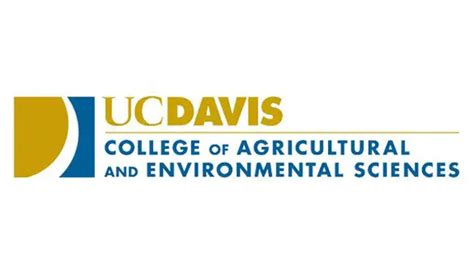UC Davis, a world-renowned university located in California’s agricultural hub, has been at the forefront of agricultural research and innovation for over a century. With its vast resources, exceptional faculty, and commitment to sustainability, UC Davis has made significant contributions to the advancement of agriculture.

Cutting-Edge Research and Innovative Solutions
The university’s research endeavors span a wide range of agricultural disciplines, including:
- Plant Sciences: Gene editing, drought-tolerant crops, and pest management.
- Animal Sciences: Animal welfare, disease control, and livestock genetics.
- Environmental Sciences: Sustainable farming practices, water conservation, and climate change mitigation.
UC Davis has been instrumental in developing groundbreaking technologies, such as:
- Smart Irrigation Systems: These systems use sensors and data analytics to optimize water usage and reduce environmental impact.
- Precision Farming: This approach integrates data from drones, sensors, and satellite imagery to provide farmers with real-time information on crop health and field conditions.
- Bioengineered Crops: UC Davis researchers are exploring the use of biotechnology to improve crop yield, resistance to pests and diseases, and nutritional content.
Impactful Collaborations and Partnerships
UC Davis actively collaborates with government agencies, industry leaders, and farmers to translate its research into practical solutions. Partnerships such as the California Tomato Research Institute and the California Ag One Water Innovation Center foster interdisciplinary research, technology transfer, and knowledge sharing.
Sustainability and Environmental Stewardship
UC Davis places great emphasis on sustainability and environmental stewardship. The university has implemented numerous initiatives to reduce its carbon footprint, promote biodiversity, and conserve natural resources. These include:
- Green Building Design: The campus features energy-efficient buildings and LEED-certified facilities.
- Renewable Energy: UC Davis generates a significant portion of its electricity from renewable sources, such as solar and geothermal.
- Sustainable Landscapes: The campus landscape is designed to conserve water and support wildlife.
Cultivating the Next Generation of Agricultural Leaders
UC Davis is committed to educating and preparing future leaders in agriculture. The College of Agricultural and Environmental Sciences offers undergraduate and graduate programs in a variety of disciplines, from plant biology to food science. The university also provides hands-on learning opportunities through research projects, internships, and student organizations.
Innovation Beyond Agriculture
UC Davis’s agricultural expertise has led to innovative applications in a variety of fields, including:
- Biofuels: Research on bioenergy crops and conversion technologies has contributed to the development of alternative fuel sources.
- Pharmaceuticals: Advances in plant genetics and biochemistry are used to produce pharmaceuticals and therapeutic agents.
- Water Technologies: UC Davis researchers are developing advanced water treatment systems and water conservation strategies to address global water challenges.
Testimonials and Recognition
UC Davis’s leadership in agricultural research and innovation has been widely recognized. Some notable achievements include:
- Ranked #1 in the world for Agricultural Sciences by the Center for World University Rankings (2023).
- 14 Nobel Laureates affiliated with the university in agricultural and environmental sciences.
- Over $100 million in research funding annually for agricultural projects.
Conclusion
UC Davis continues to be a driving force in agricultural innovation, addressing global challenges and shaping the future of agriculture. Its commitment to cutting-edge research, sustainable practices, and educational excellence ensures its position as a world-renowned leader in the field.
- $100 million+: Annual research funding for agricultural projects.
- 14: Nobel Laureates affiliated with the university in agricultural and environmental sciences.
- 500+: Faculty involved in agricultural research.
- 1,000+: Graduate students engaged in agricultural research.
- 10,000+: Undergraduate students enrolled in agricultural programs.
| Area | Applications | Examples |
|---|---|---|
| Plant Sciences | Enhanced crop yield and resilience | Drought-tolerant maize, disease-resistant tomatoes |
| Animal Sciences | Improved animal health and productivity | Early disease detection in livestock, precision feeding systems |
| Environmental Sciences | Sustainable farming practices | Water-saving irrigation, carbon sequestration in soil |
| Interdisciplinary Research | Novel solutions for complex challenges | Bioengineered crops for biofuels production, water treatment using plant-based technologies |
- Attend Industry Conferences: Engage with researchers and industry leaders to stay abreast of the latest agricultural technologies and best practices.
- Collaborate with Local Farmers: Partner with local farmers to test new technologies and implement sustainable farming strategies on a commercial scale.
- Utilize Extension Services: Access research-based information and technical assistance from UC Davis’s Agricultural and Natural Resources (ANR) Extension network.
- Stay Informed: Subscribe to UC Davis’s agricultural research newsletters and follow faculty on social media to keep up with the latest advancements.
- Identify the Challenge: Determine the specific agricultural issue or opportunity you want to address.
- Research Available Solutions: Explore UC Davis research publications and databases to find relevant technologies and best practices.
- Consult with Experts: Reach out to UC Davis researchers or extension specialists for guidance and support.
- Plan and Implement: Develop a plan for implementing the selected solutions on your farm or organization.
- Monitor and Evaluate: Track the results and make adjustments as necessary to maximize outcomes.
